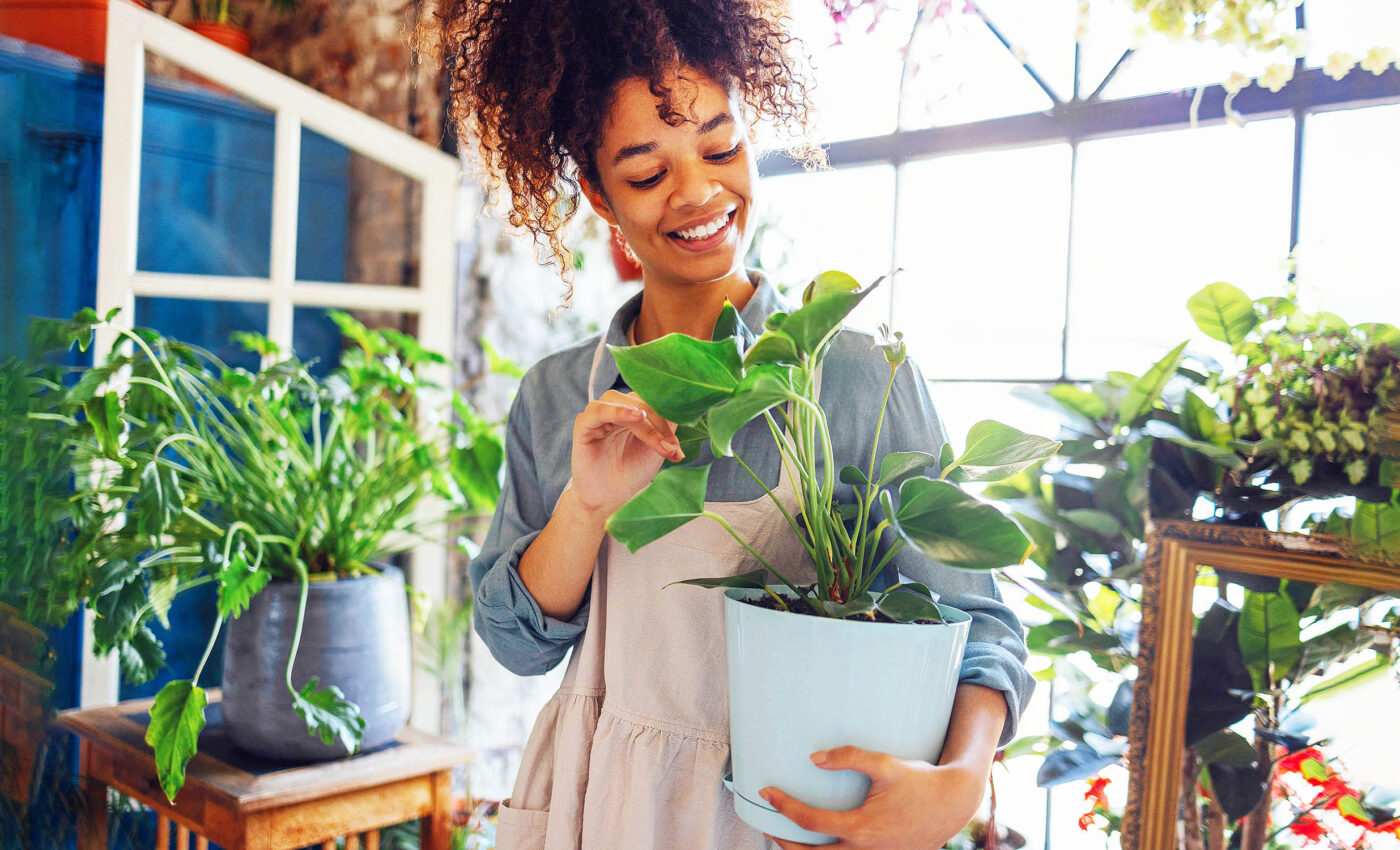
Indoor gardening has many surprising health benefits
In today’s fast-paced urban lifestyle, we often find ourselves disconnected from nature and its countless benefits. However, a recent collaborative study has shed light on a simple yet powerful way to enhance our health and well-being: indoor gardening.
Benefits of urban indoor gardening
Doctoral Researcher Mika Saarenpää from the Faculty of Biological and Environmental Sciences, University of Helsinki, conducted a fascinating study that explored the impact of urban indoor gardening on the human microbiota and immune regulation.
The study involved two groups of participants: one engaged in indoor gardening using a microbially rich growing medium that mimicked forest soil, while the control group used a microbially poor peat-based medium. The results were astounding.
“One month of urban indoor gardening boosted the diversity of bacteria on the skin of the subjects and was associated with higher levels of anti-inflammatory cytokines in the blood. The group studied used a growing medium with high microbial diversity emulating the forest soil,” explains Saarenpää.
Our “clean” lives might be making us sick
Urbanization has brought about many conveniences, but it has also led to a significant reduction in our exposure to diverse microbes. This shift has been linked to a rise in immune-mediated diseases such as allergies, asthma, and autoimmune disorders.
“We live too ‘cleanly’ in cities,” Saarenpää emphasizes. The sanitized urban environment, he explains, has led to a significant reduction in our exposure to diverse microbes, altering the delicate balance of our body’s microbiota. This shift has been linked to a concerning rise in immune-mediated diseases.
“Our study shows that engaging in meaningful and natural activities, such as indoor gardening, can help counteract these effects by increasing the diversity of our microbiota and supporting the regulation of our immune system,” Saarenpää asserts.
Bringing nature home is simple and accessible
One of the most exciting aspects of this study is that increasing microbial exposure can be done easily and safely at home, all year round.
The space and financial investment required is minimal. Participants in the study used regular flower boxes and readily available plants such as peas, beans, mustards, and salads.
“We don’t yet know how long the changes observed in the skin microbiota and anti-inflammatory cytokines persist, but if gardening turns into a hobby, it can be assumed that the regulation of the immune system becomes increasingly continuous,” Saarenpää notes.
Exposing children to nature at an early age
Saarenpää stresses the importance of exposing children to nature and microbes early on, as their immune systems develop rapidly during childhood.
He suggests introducing planter boxes filled with microbially rich soil in kindergartens, schools, and even hospitals, especially in densely built urban areas.
However, Saarenpää also emphasizes the need for caution, saying, “For urban gardening to bring health benefits instead of risks, the skin of the hands in particular must be unbroken, and the inhalation of dusty growing media avoided.”
Reconnecting with nature’s diversity
While indoor gardening offers a practical solution for increasing microbial exposure, Saarenpää envisions a broader goal: creating urban environments that are diverse enough to provide the necessary microbial exposure without relying on specially designed products.
“My research emphasizes the dependence of our health on the diversity of nature and that of soil in particular,” Saarenpää states. He underscores the fundamental truth that human well-being is intimately connected to the rich tapestry of species around us.
“In an ideal world, our urban landscapes would be designed to nurture this diversity, providing a natural source of beneficial microbial exposure without the need for specially engineered solutions,” Saarenpää envisions.
“By recognizing our place within the intricate web of life, we can create cities that promote health and resilience for all their inhabitants.”
Health and happiness from indoor gardening
In summary, by embracing indoor gardening, we can cultivate a healthier future for ourselves and our communities.
This simple yet powerful activity brings the benefits of nature into our homes and serves as a reminder of our intricate connection with the diverse world around us.
As we nurture our plants, we also nurture our own well-being, strengthening our immune systems and reducing the risk of chronic diseases.
So let us plant the seeds of change, one planter box at a time, and watch as our cities transform into thriving, resilient ecosystems that support the health and happiness of all who call them home.
—–
Mika Saarenpää was joined by researchers from the Natural Resources Institute Finland and Tampere University for this study.
The full study was published in the journal Environment International.
—–
Like what you read? Subscribe to our newsletter for engaging articles, exclusive content, and the latest updates.
Check us out on EarthSnap, a free app brought to you by Eric Ralls and Earth.com.
—–













